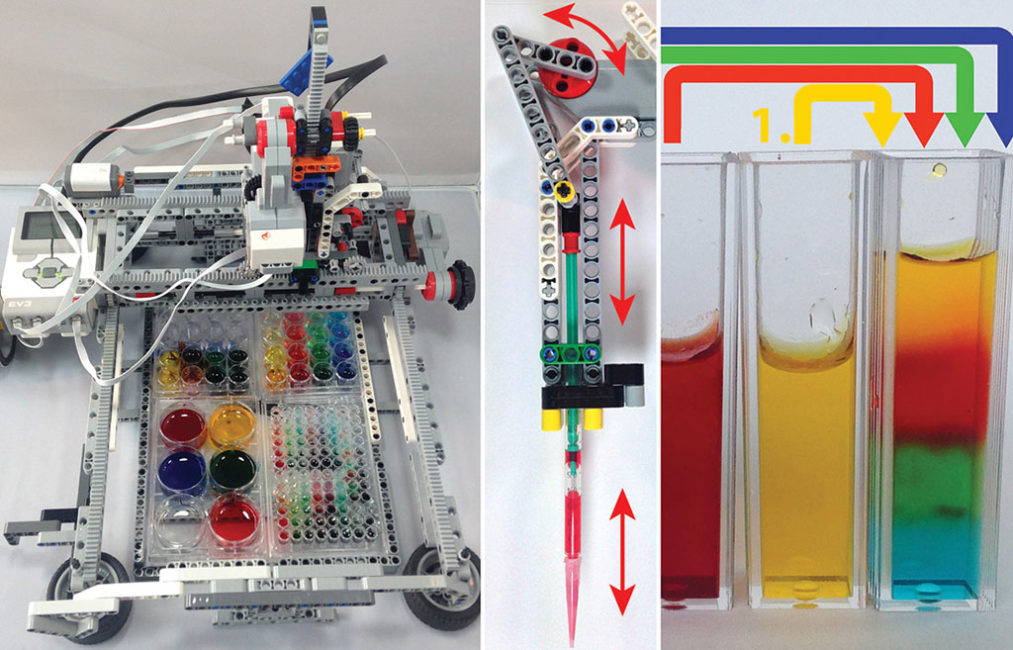mediaX Thought Leader Uses DIY Tool To Automate Biology Experiments

Elementary and secondary school students who later want to become scientists and engineers often get hands-on inspiration by using off-the-shelf kits to build and program robots. But so far it’s been difficult to create robotic projects to foster interest in the “wet” sciences – biology, chemistry and medicine – so called because experiments in these field often involve fluids.
By combining the Lego Mindstorms robotics kit with a cheap and easy-to-find plastic syringe, researchers at Stanford University created a set of liquid-handling robots that approach the performance of the far more costly automation systems found at universities and biotech labs.
“We really want kids to learn by doing,” said Ingmar Riedel-Kruse, assistant professor of bioengineering, who led the team that reports its work in the journal PLoS Biology.
“We show that with a few relatively inexpensive parts, a little training and some imagination, students can create their own liquid-handling robots and then run experiments on it – so they learn about engineering, coding and the wet sciences at the same time,” said Riedel-Kruse.
A paper describing the work was published March 21 in PLoS Biology. Riedel-Kruse is the senior author. The lead author is postdoctoral scholar Lukas Gerber.
Read the entire Stanford News Story by Andrew Myers HERE